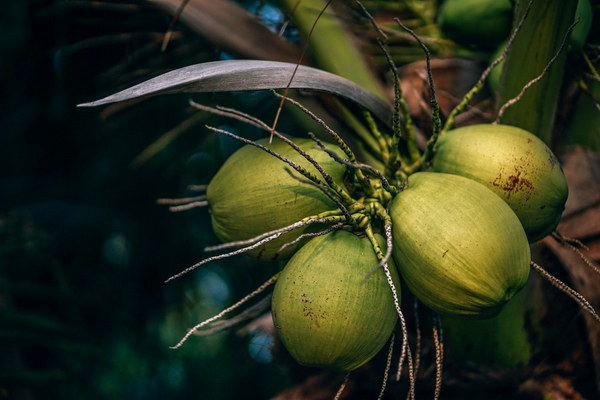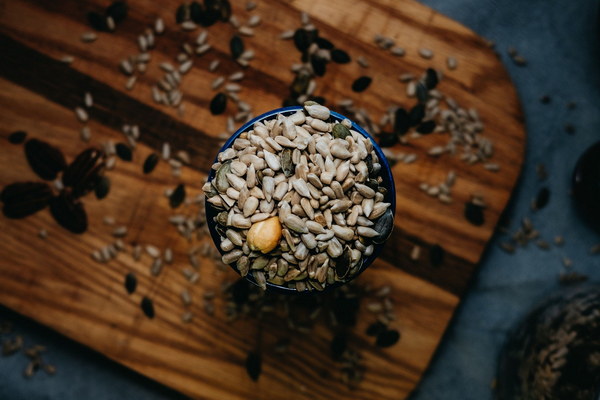Revitalizing the Kidneys and Expelling Dampness Discover the Benefits of Traditional Chinese Herbs for Urinary Health
In the realm of traditional Chinese medicine (TCM), there exists a vast array of herbs and natural remedies that have been used for centuries to maintain and restore balance within the body. One such category of remedies is focused on tonifying the kidneys, dispelling dampness, and promoting diuresis. These herbal formulas not only offer relief from various urinary issues but also contribute to overall well-being. Let's delve into the world of kidney-tonifying, dampness-dispelling, and diuretic herbs and explore their benefits.
Understanding Kidney Function in TCM
According to TCM, the kidneys play a vital role in maintaining the balance of fluids within the body and are responsible for storing vital essence (Jing), which is essential for growth, development, and longevity. When the kidneys are weakened, it can lead to a variety of problems, including urinary issues such as frequent urination, cloudy urine, or difficulty urinating. Additionally, dampness accumulation within the body can lead to edema, fatigue, and other discomforts.
Herbs for Kidney Tonification
To address kidney weakness and promote overall health, TCM utilizes a variety of herbs that are known for their kidney-tonifying properties. Some of the most commonly used herbs include:
1. He Shou Wu (Polygonum multiflorum): This herb is renowned for its ability to nourish the kidneys and promote hair growth. It is often used to treat kidney deficiency symptoms, such as weakness, dizziness, and tinnitus.
2. Cistanche (Cistanche deserticola): Known as a natural Viagra in TCM, Cistanche is used to strengthen the kidneys and improve sexual function. It is also believed to boost energy and vitality.
3. Eucommia (Eucommia ulmoides): This herb is widely used to tonify the kidneys and strengthen the bones. It is often prescribed for backache, knee pain, and weakness due to kidney deficiency.

Herbs for Dampness-Dispersing
Dampness in TCM refers to the accumulation of excess fluid in the body, which can lead to various health issues. Herbs that help to dispel dampness are essential in maintaining a healthy balance. Some notable dampness-dispersing herbs include:
1. Atractylodes (Atractylodes macrocephala): This herb is commonly used to drain dampness, relieve stomachache, and improve digestion. It is often combined with other herbs to address dampness-related issues.
2. Poria (Poria cocos): Poria is a versatile herb that can be used to drain dampness, clear heat, and relieve edema. It is often included in herbal formulas to support kidney function and promote diuresis.
Herbs for Diuresis
To promote urinary health and relieve conditions such as urinary tract infections and kidney stones, TCM utilizes diuretic herbs. These herbs help to increase urine production and eliminate excess fluid from the body. Some well-known diuretic herbs include:
1. Phyllanthus (Phyllanthus urinaria): This herb is commonly used to treat urinary tract infections, kidney stones, and liver disorders. It is known for its ability to clear heat and promote diuresis.
2. Cordyceps (Cordyceps sinensis): Cordyceps is a potent herb that can boost kidney function and improve urinary health. It is often used to treat kidney weakness, impotence, and fatigue.
Combining Herbs for Maximum Effect
In TCM, it is not uncommon to combine multiple herbs to address a specific condition, as this allows for a more comprehensive and effective treatment. For example, a formula may include kidney-tonifying herbs such as He Shou Wu and Eucommia, dampness-dispersing herbs like Atractylodes and Poria, and diuretic herbs such as Phyllanthus and Cordyceps.
Conclusion
The use of kidney-tonifying, dampness-dispersing, and diuretic herbs in traditional Chinese medicine offers a natural and holistic approach to urinary health. By addressing the root causes of imbalances within the body, these herbal remedies can promote overall well-being and relieve symptoms associated with kidney weakness, dampness accumulation, and urinary issues. However, it is essential to consult with a qualified TCM practitioner to ensure the appropriate selection and dosage of herbs for your specific needs.









